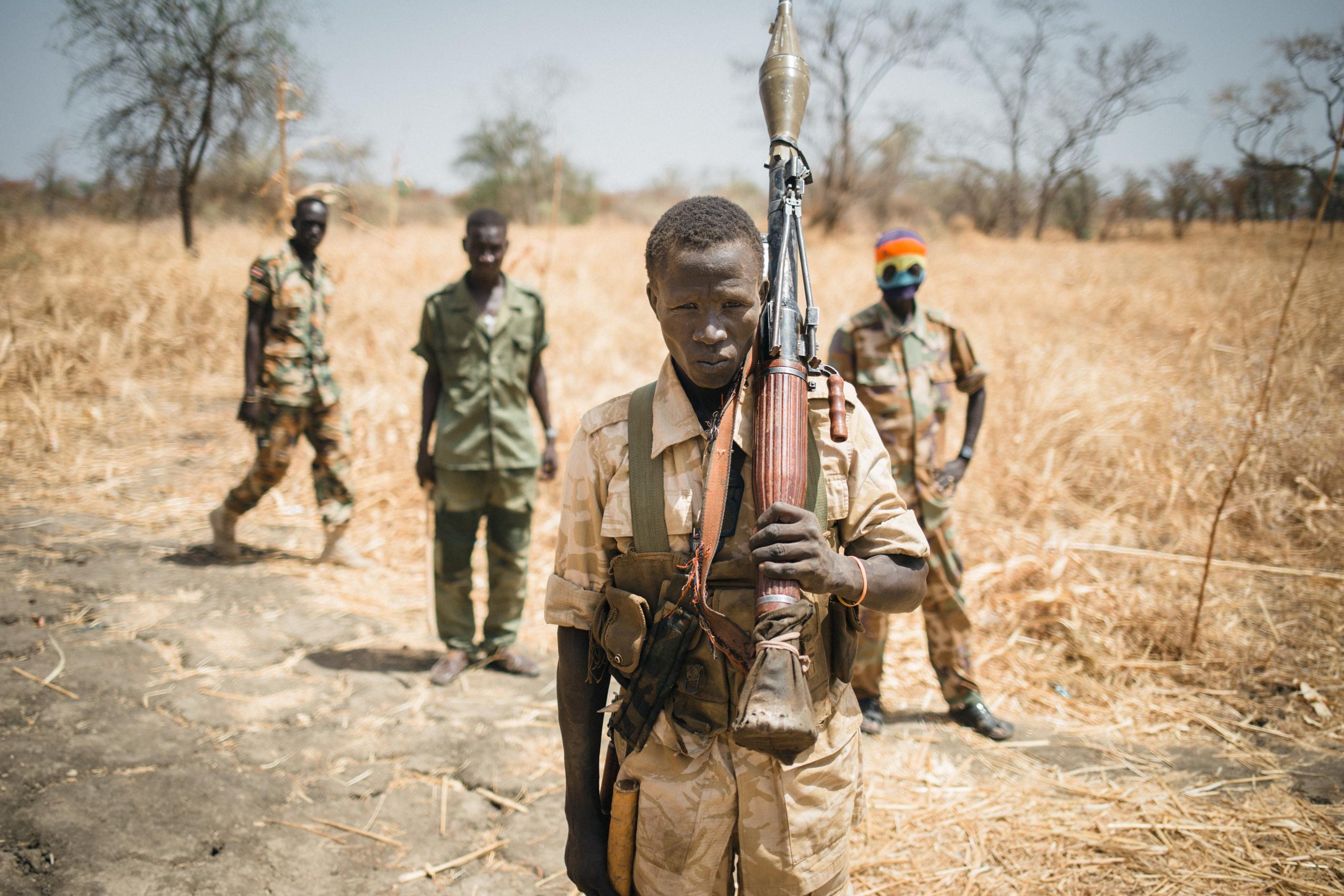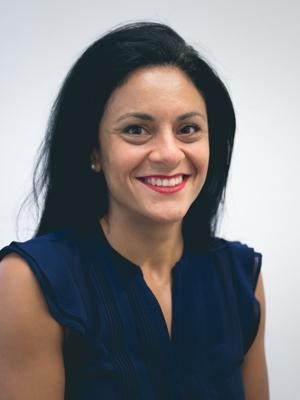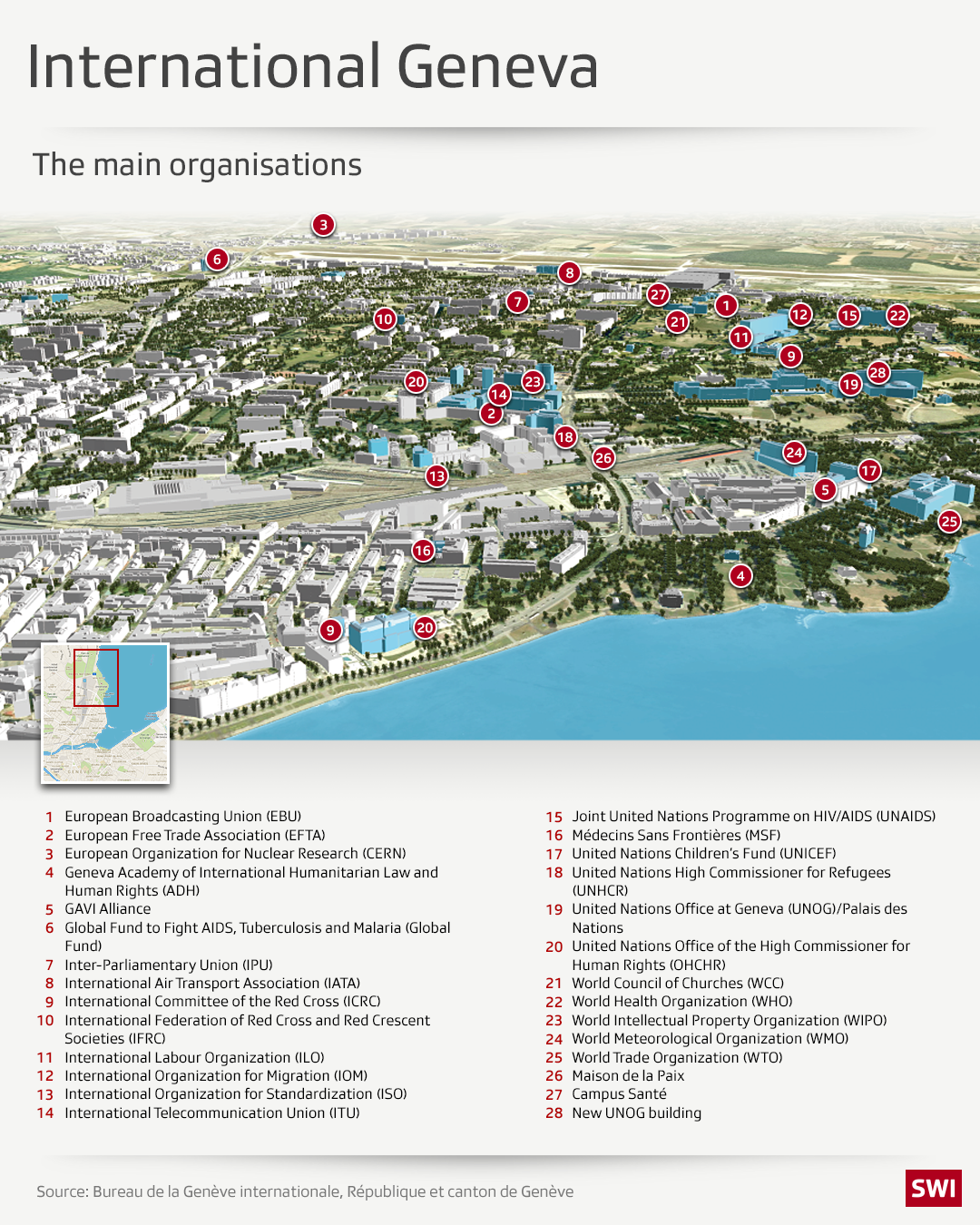Swiss non-profit status gives wings to ex-UN news agency

The former United Nations-controlled news service IRIN says its rebirth as an independent agency should enable hard-hitting coverage of the billion-dollar global aid industry.
“This is the culmination of two years hard work, stress, tears and adventure,” IRIN External linkdirector Heba Aly told some 100 guests at the inauguration of its new Geneva headquarters in October.
After nearly 20 years as part of the UN Office for the Coordination of Humanitarian Affairs (OCHA), IRIN spun off to become an independent humanitarian media organisation in January 2015. In 2016, IRIN was reborn as a Swiss association.
With its network of 170 freelance journalists in 70 crisis zones around the world, it hopes to become a key source for original field reporting and analysis of humanitarian crises and trends. IRIN says it wants to shine a spotlight on the humanitarian world, which it compares ironically to the Vatican in terms of transparency.
“A handful of donors and a handful of giant aid agencies tend to monopolize this $20 billion (CHF19.8 billion) industry, and the level of scrutiny and transparency in their work is extremely low,” said Ben Parker, in charge of enterprise projects and a new investigative unit at IRIN.

Independence
The “Integrated Regional Information Networks”, as it stands for, was founded by the UN in 1995 in the wake of the Rwandan genocide to report on humanitarian emergencies. Under UN control the organisation faced growing constraints, however, leading to editorial self-censorship and a ban on certain reporting. In 2013, UN officials told IRIN editors to stop covering the Syrian war, as it was worried that its coverage could wreck Syria-related talks involving the UN.
“Having an editorially independent news agency within a UN operation that had very real stakes on the ground was always a difficult balance,” Aly told swissinfo.ch. “There was that blurriness whether IRIN was inside or outside the system.”
Leaving the UN and having to make do with a much lower budget (around $2 million compared to $11 million previously) was a tough call, but IRIN believes it can do a much better job operating from a ‘more independent vantage point’.
“Being outside the UN allows us to continue covering these important issues without having implications on the UN’s operations and affords us greater independence to be able to critically analyse the sector,” said Aly.
“We now have even greater support from the UN, as there are many people within the system who want to see certain issues discussed but can’t do so from their own institution. We often get leaks, pitches and story ideas from within the UN.”
“IRIN’s arrival in Geneva is very good news for this city and for the extensive humanitarian community based here. It will strengthen the local media scene and introduce a crucial voice of independent analysis in the humanitarian sector, which has long recognized the need for greater accountability and transparency.”
Geneva = ‘perfect fit’
The IRIN director described their new Geneva base and Switzerland’s rich humanitarian tradition – birthplace of the Red Cross and home to the European headquarters of the UN – as a ‘perfect fit’ for the organisation.
“We chose Geneva as it’s the global hub for humanitarian action and debate,” she said.
IRIN says its new status as a Swiss NGO with statutes fixed under Swiss law should ensure editorial independence. The non-profit status offers flexibility and a relatively light administration and governance structure, said Aly.
“In Kenya, for example, where we used to have our headquarters as part of the UN, if you try to set up as an NGO it’s very difficult administratively and there are all kinds of conditions around who you can hire – which is to some extent also the situation here in Switzerland,” she noted.
“But here it’s certainly a smoother road and the Geneva government has made huge efforts to try to create a welcoming environment for organisations like ours. We’ve gotten a lot of support, logistical and guidance from the canton and the Geneva Welcome Centre (CAGI) [service for new arrivals to International Geneva].”
But the downside is that Geneva is extremely expensive, particularly salaries and running costs, she admits. IRIN has a global staff of 12, with a small but growing set-up in Geneva.
“And it’s harder to hire non-Europeans, but this is a Europe-wide issue,” she added.
Funding headache
Having non-profit status has opened up a range of potential funding sources, particularly grants. But fundraising as an NGO has been a hard learning experience.
In 2015, Malaysian philanthropist Jho Low, director of Jynwel Charitable Foundation, promised IRIN a $25 million 15-year investment. This summer Low, a businessman with Hollywood ties, was named in a US lawsuit trying to seize more than $1 billion in allegedly ill-gotten assets tied to Malaysian state investment fund 1MDB.
“As soon as we were aware of question marks raised we withdrew from that partnership,” said Aly. “Given the nature of our work we felt it was not an appropriate partnership at that time. The Jynwel Charitable Foundation constituted 83% of our funding in 2015, so it was a very significant change in our funding situation when we decided to withdraw.”
Fortunately other donors quickly filled the gap, she said. IRIN currently receives funds from the governments of Switzerland and Sweden, the Swiss Lottery, and philanthropic foundations in Europe and the United States. Switzerland has been a regular donor since the beginning and now provides CHF250,000 annually.
“Part of the reason we are optimistic about the future is that people believe in our work and value it and when we’ve needed support to stay alive donors have stepped in,” said Aly.

In compliance with the JTI standards
More: SWI swissinfo.ch certified by the Journalism Trust Initiative












You can find an overview of ongoing debates with our journalists here . Please join us!
If you want to start a conversation about a topic raised in this article or want to report factual errors, email us at english@swissinfo.ch.